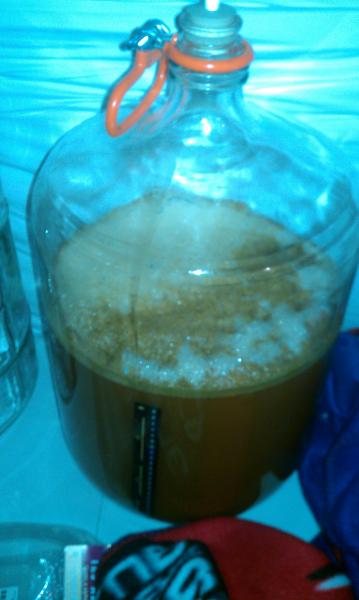AMW345
Member
So I'm brand new to home brewing! I moved out here to Colorado for work reasons and decided to take my love of good brews to the next level. I am currently brewing my first 5 GAL batch of a nut brown ale variation.
I made sure not to go cheap and currently have a fairly good setup equipment wise for a beginner (including a 6.5 and 5.0 GAL glass carboys). Also, I took great care to sanitize and clean ALL my equipment used in the brew making process.
I did have one question. When I measured my original gravity prior to starting fermentation, I got a reading of 1.028 at a temperature of roughly 75 degrees. I've read that any temperature above 60 degrees will throw off the hydrometer readings some. I'm just wondering if the reading I got is a good or bad sign. Ive read different ranges on OG for different brews....
I made sure not to go cheap and currently have a fairly good setup equipment wise for a beginner (including a 6.5 and 5.0 GAL glass carboys). Also, I took great care to sanitize and clean ALL my equipment used in the brew making process.
I did have one question. When I measured my original gravity prior to starting fermentation, I got a reading of 1.028 at a temperature of roughly 75 degrees. I've read that any temperature above 60 degrees will throw off the hydrometer readings some. I'm just wondering if the reading I got is a good or bad sign. Ive read different ranges on OG for different brews....






